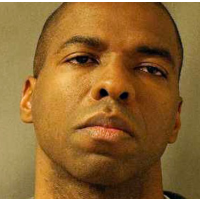Federal Judges Vote 2-1 to Order Journalist to Testify in CIA Whistleblower Case
 Jeffrey Sterling (photo: ABC News)
Jeffrey Sterling (photo: ABC News)
The Obama administration won a major court victory in its fight against investigative journalism last week, convincing two judges on a sharply divided federal appeals court panel to rule that reporters can be ordered to testify about their confidential sources and jailed for refusing. If the case survives an inevitable appeal, it will almost surely inhibit reporters from pursuing stories based on confidential government informants, according to both the dissenting judge and journalism experts.
The reporter being threatened with jail is James Risen, who covers national security for The New York Times. At issue is Risen’s 2006 book, State of War, which recounted the tale of a failed CIA scheme during the 1990s to pass off defective technical blueprints to Iranian scientists. Stung by the book’s portrayal of the operation as a reckless gamble that could have given the Iranians valuable data if its execution had not been so badly botched, in December 2010 the CIA accused a former agent, Jeffrey Sterling, of leaking classified information about it to Risen.
Continuing a disturbing trend of treating leakers like spies, the Obama Justice Department charged Sterling with 10 felony counts, including obstruction of justice and espionage, just as it has charged Pfc. Bradley Manning and NSA leaker Edward Snowden. The Obama administration has brought seven leak prosecutions in just over four years; only three such cases had been prosecuted under all previous presidents combined.
The outcome of the case turned entirely on whether the judges accepted Risen’s argument that the First Amendment to the Constitution provides a limited privilege to reporters who promise their sources confidentiality in return for information that they are not legally authorized to disclose. Use of such sources is at the core of investigative journalism, and was critical in the public revelation of such scandals as Watergate and Iran-Contra.
Nevertheless, the Obama administration argued in court papers that no such “journalistic privilege” exists, and that district court judge Leonie M. Brinkema of Alexandria, Virginia, erred when she found a partial privilege protected Risen. Judge William Byrd Traxler Jr., joined by Judge Albert Diaz, agreed:
“There is no First Amendment testimonial privilege, absolute or qualified, that protects a reporter from being compelled to testify by the prosecution or the defense in criminal proceedings about criminal conduct that the reporter personally witnessed or participated in, absent a showing of bad faith, harassment, or other such non-legitimate motive, even though the reporter promised confidentiality to his source.”
Judge Roger Gregory filed a sharp dissent, depicting the majority decision as “sad” and a serious threat to investigative journalism.
“Under the majority’s articulation of the reporter’s privilege, or lack thereof, absent a showing of bad faith by the government, a reporter can always be compelled against her will to reveal her confidential sources in a criminal trial. The majority exalts the interests of the government while unduly trampling those of the press, and in doing so, severely impinges on the press and the free flow of information in our society.”
Although the ruling creates a precedent only in the Fourth Circuit, that circuit covers Maryland and Virginia, where national security agencies like the Pentagon, the NSA and the CIA are located.
The ruling came even as the Obama administration is trying to convince the public that it is not aggressively targeting reporters who uncover official misconduct by releasing new DOJ guidelines for handling leak investigations and pushing for a reporter shield law.
Risen, who cannot invoke the Fifth Amendment in refusing to testify because he has been granted immunity for his testimony, has vowed to go to prison rather than testify about his sources and to appeal the case as far as the Supreme Court.
Over the past three decades, the government has jailed nearly two dozen journalists for refusing to testify or disclose sources or other types of reporting information, according to a list maintained by Reporters Committee for Freedom of the Press.
-Matt Bewig
To Learn More:
Court Tells Reporter to Testify in Case of Leaked C.I.A. Data (by Charlie Savage, New York Times)
Federal Appeals Court: Journalists can’t Decline to Testify in Criminal Trials (by Matt Zapotosky and Justin Jouvenal, Washington Post)
United States v. Sterling (pdf)
Justice Dept. Tries to Replace Condoleezza Rice Testimony with Her “Talking Points” (by Noel Brinkerhoff and David Wallechinsky, AllGov)
Ex-CIA Officer Arrested in Continuing Obama Attack on Alleged Leakers (by Noel Brinkerhoff and David Wallechinsky, AllGov)
- Top Stories
- Unusual News
- Where is the Money Going?
- Controversies
- U.S. and the World
- Appointments and Resignations
- Latest News
- Trump Orders ICE and Border Patrol to Kill More Protestors
- Trump Renames National Football League National Trump League
- Trump to Stop Deportations If…
- Trump Denounces World Series
- What If China Invaded the United States?






Comments